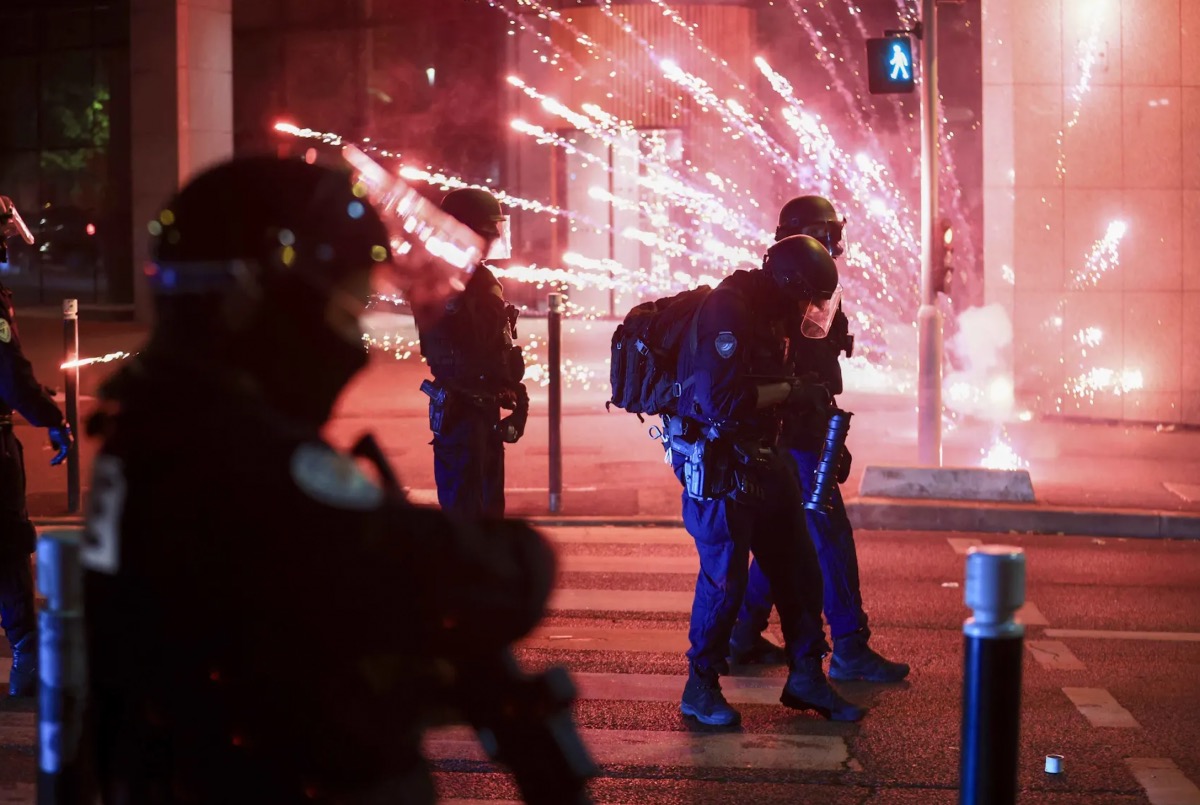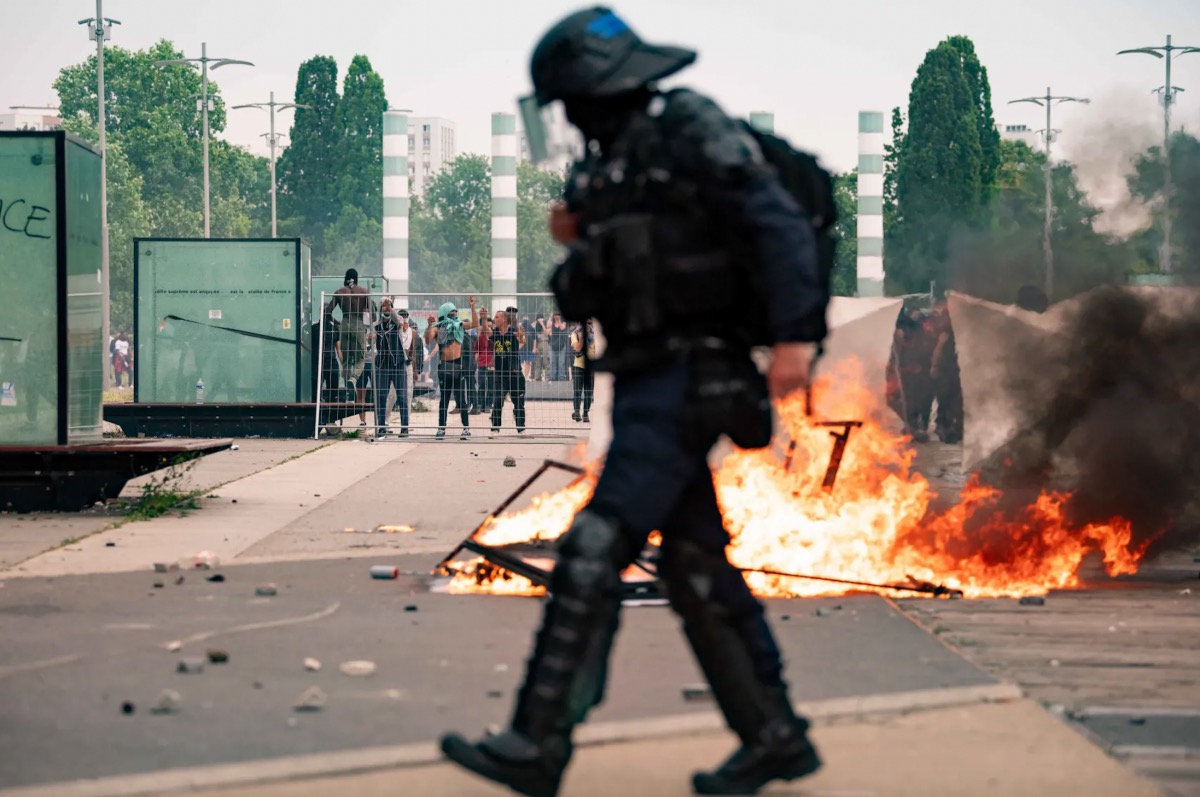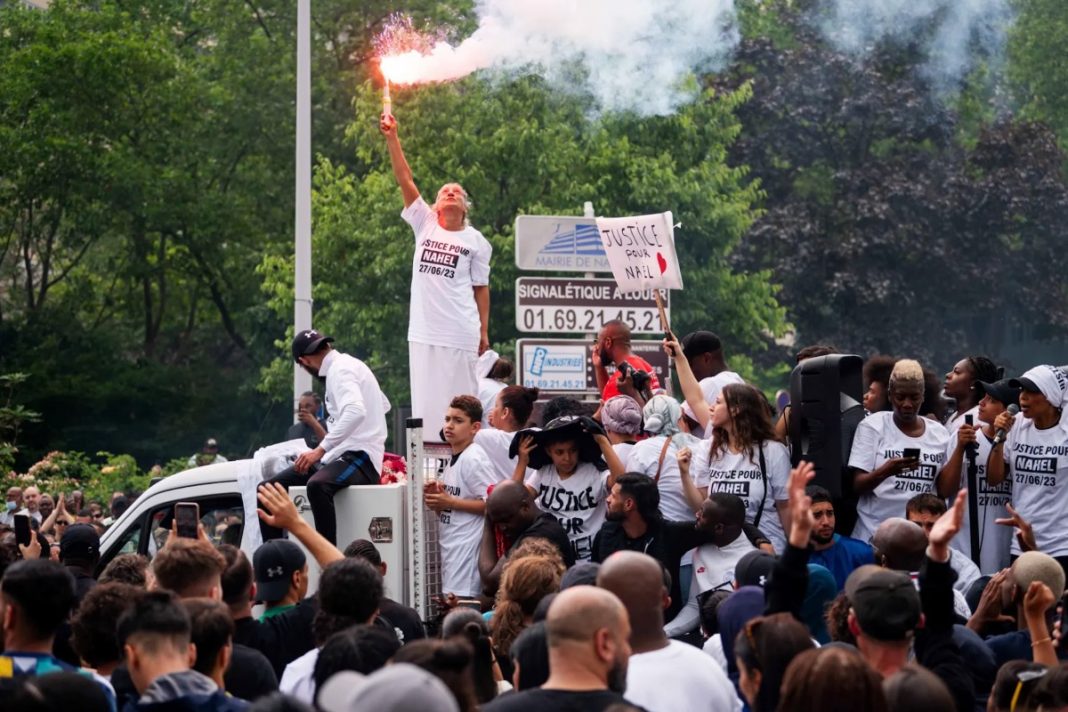PARIS, France — A nation in turmoil. The streets of France, particularly in Paris, were consumed by chaos for a third consecutive night on Thursday, as anger and despair over the fatal police shooting of a 17-year-old boy with Algerian roots roiled the country.
Tensions have been simmering for years over the treatment of ethnic minorities in France, and the shooting of the teenager, known only as Nahel, proved to be the tipping point.
On Thursday, June 29, 2023, the French capital resembled a war zone. Protesters, both enraged and sorrowful, erected barricades, set cars ablaze, and looted stores.

French security forces, in turn, fired tear gas and made hundreds of arrests in an attempt to restore order.
French President Emmanuel Macron, labelling the violence “absolutely unacceptable,” held crisis meetings to address the situation.
Nahel was fatally shot during a traffic stop in Nanterre, a suburb of Paris. Early investigations have led to the officer being preliminarily charged with voluntary homicide.
Mounia M., Nahel’s mother, conveyed her heartbreak on France 5 television. “He saw a little, Arab-looking kid, he wanted to take his life,” she lamented. “A police officer cannot take his gun and fire at our children, take our children’s lives.”
A family friend, Anais, 27, who preferred not to disclose her last name, stated that the issues plaguing the country are reminiscent of those in the United States. “They kill us, they stop and search abusively, they abuse their authority — it needs to stop,” she said.
The peaceful march that began on Thursday afternoon in honour of Nahel swiftly morphed into a maelstrom of violence. Beyond Paris, unrest spread to the southern city of Marseille and even crossed borders into Brussels.
With approximately 40,000 police officers deployed and over 900 individuals detained, the government has refrained from declaring a state of emergency.
The National Police Union Alliance insisted that words alone are insufficient and urged for swift action to restore law and order.
“Faced with these savage hordes, asking for calm is no longer enough, it must be imposed,” the union declared in a statement.
President Macron, who returned from a European Union summit to address the crisis, appealed to parents to keep their children home and engaged with social media firms to curtail content that could incite further violence.
Footage from the scene of the shooting showed two police officers leaning into the driver-side window of Nahel’s car, with one officer seemingly firing a shot as the car moved away.
The prosecutor, Pascal Prache, said that the initial investigation indicated that “the conditions for the legal use of the weapon were not met.”

This incident has reignited accusations of systemic discrimination within law enforcement. Dominique Sopo, the head of campaign group SOS Racisme, poignantly asked, “How do we make it so that we have a police force that when they see Blacks and Arabs, don’t tend to shout at them, use racist terms against them and in some cases, shoot them in the head?”
The United Nations Human Rights Office called for France to address deep-seated issues of racism and racial discrimination.
Spokesperson Ravina Shamdasani urged the country to ensure that “the use of force by police” is proportional, legal, and non-discriminatory.
As France grapples with the anguish and outrage precipitated by this tragic event, the flames of unrest continue to burn, challenging the nation’s commitment to liberty, equality, and fraternity.







